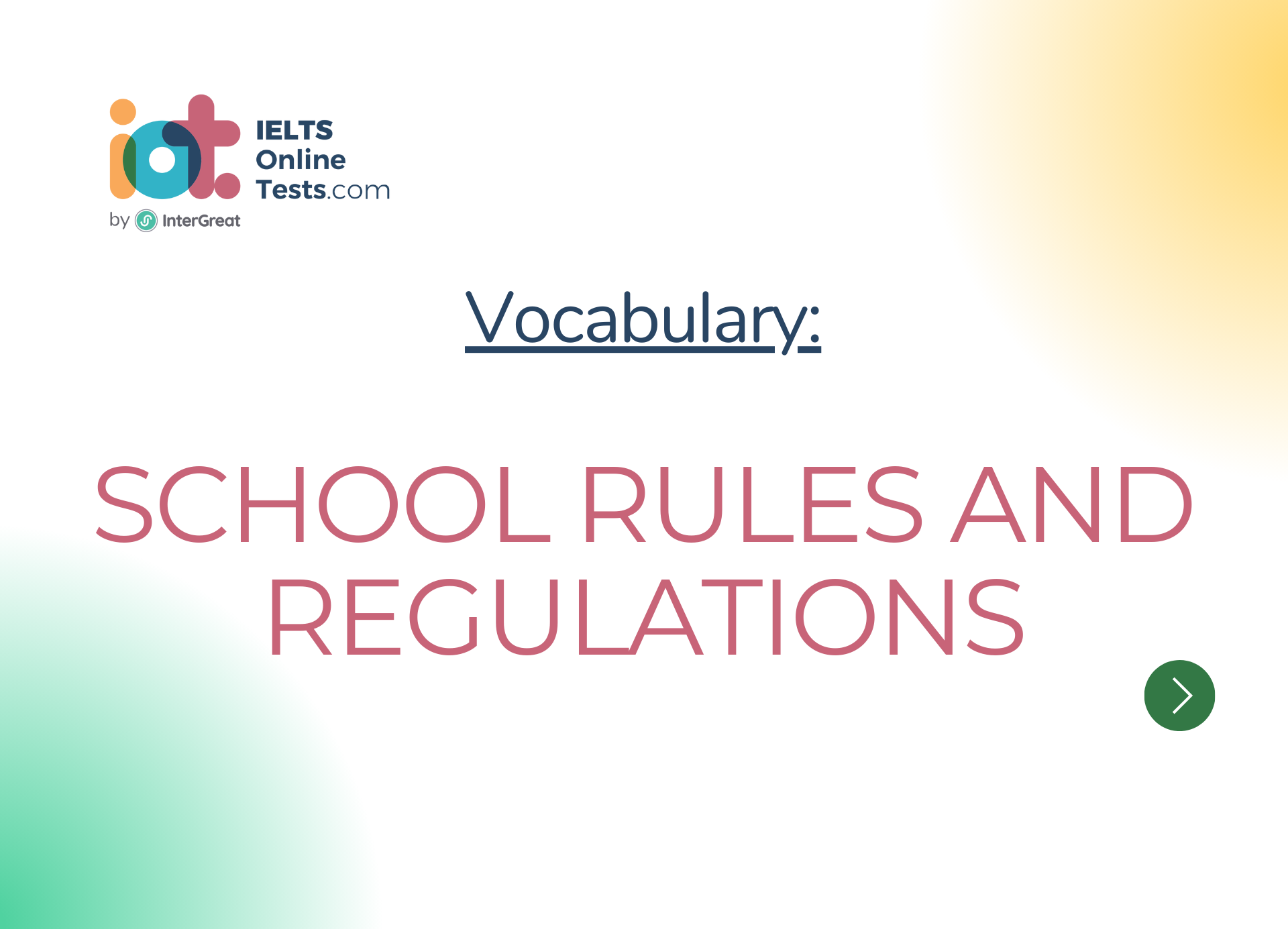
School rules and regulations
Here's a lesson on vocabulary related to "School Rules and Regulations" for the IELTS band score 3.0-4.5:
I. General Rules:
Attendance: The act of being present in school or in class.
Punctuality: Being on time for classes and other school activities.
Uniform: A specific outfit or dress code required for students to wear.
Respect: Treating others with kindness, consideration, and politeness.
Discipline: Following the rules and maintaining good behavior.
II. Classroom Rules:
Listen attentively: Paying close attention to the teacher or speaker during class.
Raise your hand: Indicating the desire to speak or ask a question by raising one's hand.
Follow instructions: Doing what the teacher or authority figure asks.
Participate: Engaging actively in class discussions and activities.
Be prepared: Coming to class with all necessary materials and completing assignments.
III. Behavior and Conduct:
No bullying: Prohibiting any form of harassment, intimidation, or aggression towards others.
No cheating: Not using dishonest means to gain an unfair advantage in exams or assignments.
Respect personal space: Giving others their privacy and not invading their personal boundaries.
Use appropriate language: Using polite and respectful language when communicating with others.
No vandalism: Avoiding any intentional damage or destruction of school property.
IV. Safety Rules:
Fire drills: Practicing procedures to safely evacuate the building in case of a fire.
No running in the corridors: Walking calmly and safely in the school hallways.
No unauthorized visitors: Restricting access to the school premises to ensure the safety of students.
Report accidents: Informing teachers or school staff about any injuries or incidents that occur.
Follow safety guidelines: Adhering to instructions for using equipment, chemicals, or tools safely.
V. Homework and Assignment Guidelines:
Submit on time: Handing in assignments by the designated deadline.
Plagiarism: Avoiding the use of someone else's work or ideas without giving proper credit.
Study regularly: Allocating time for independent study and review of class materials.
Meet academic expectations: Striving to achieve the required level of academic performance.
Seek help when needed: Asking for assistance from teachers or classmates when facing challenges.
VI. Dress Code:
Uniform policy: Specific requirements regarding the type and style of uniform to be worn.
Dress modestly: Dressing in a way that is not revealing or inappropriate for a school setting.
No hats/caps indoors: Not wearing hats or caps inside the school building.
Proper footwear: Wearing appropriate shoes that are suitable for school activities.
No excessive jewelry: Avoiding the wearing of excessive or distracting jewelry.
VII. Exam and Assessment Guidelines:
Exam regulations: Rules and procedures to be followed during exams, such as no talking or cheating.
Turn off electronic devices: Switching off cell phones or electronic devices during exams or assessments.
Test instructions: Clear guidelines provided by the teacher on how to complete the test or assignment.
Grading criteria: Criteria used to evaluate and assign grades to student work.
Academic honesty: Adhering to principles of integrity and not engaging in any form of academic dishonesty.
Remember to practice using these vocabulary words in sentences and conversations to improve your understanding and fluency in English.




